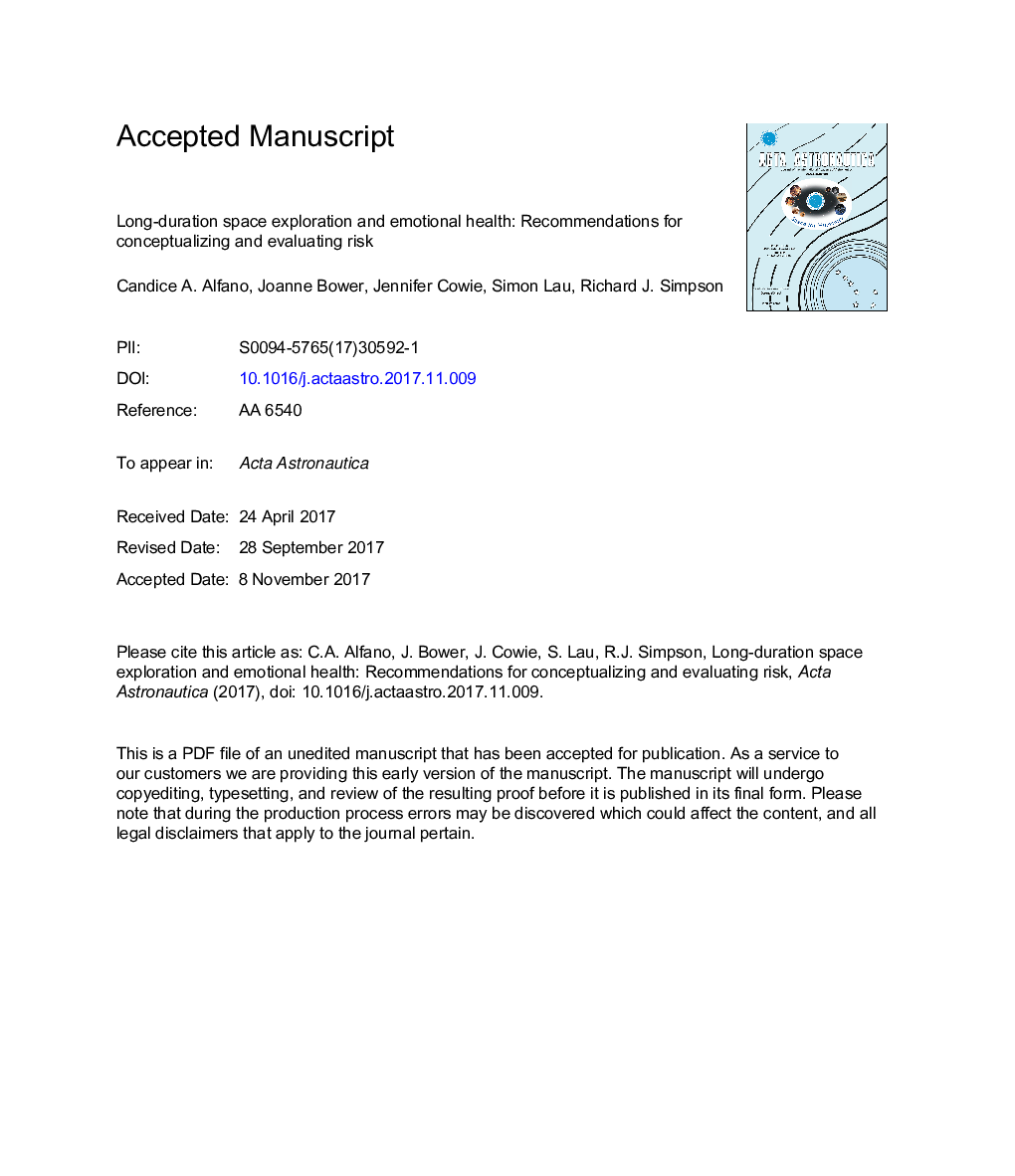| Article ID | Journal | Published Year | Pages | File Type |
|---|---|---|---|---|
| 8055853 | Acta Astronautica | 2018 | 53 Pages |
Abstract
Spaceflight to Mars will by far exceed the duration of any previous mission. Although behavioral health risks are routinely highlighted among the most serious threats to crew safety, understanding of specific emotional responses most likely to occur and interfere with mission success has lagged in comparison to other risk domains. Even within the domain of behavioral health, emotional constructs remain to be 'unpacked' to the same extent as other factors such as attention and fatigue. The current paper provides a review of previous studies that have examined emotional responses in isolated, confined, extreme environments (ICE) toward informing a needed research agenda. We include research conducted during space flight, long-duration space simulation analogs, and polar environments and utilize a well-established model of emotion and emotion regulation to conceptualize specific findings. Lastly, we propose four specific directions for future research: (1) use of a guiding theoretical framework for evaluating emotion responses in ICE environments; (2) leveraging multi-method approaches to improve the reliability of subjective reports of emotional health; (3) a priori selection of precise emotional constructs to guide measure selection; and (4) focusing on positive in addition to negative emotion in order to provide a more complete understanding of individual risk and resilience.
Related Topics
Physical Sciences and Engineering
Engineering
Aerospace Engineering
Authors
Candice A. Alfano, Joanne L. Bower, Jennifer Cowie, Simon Lau, Richard J. Simpson,
